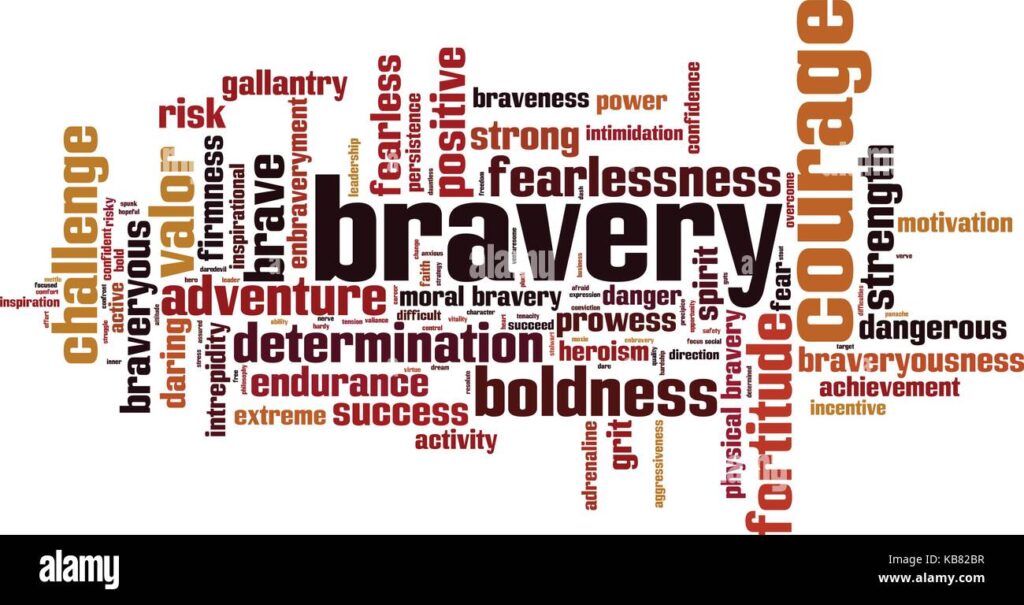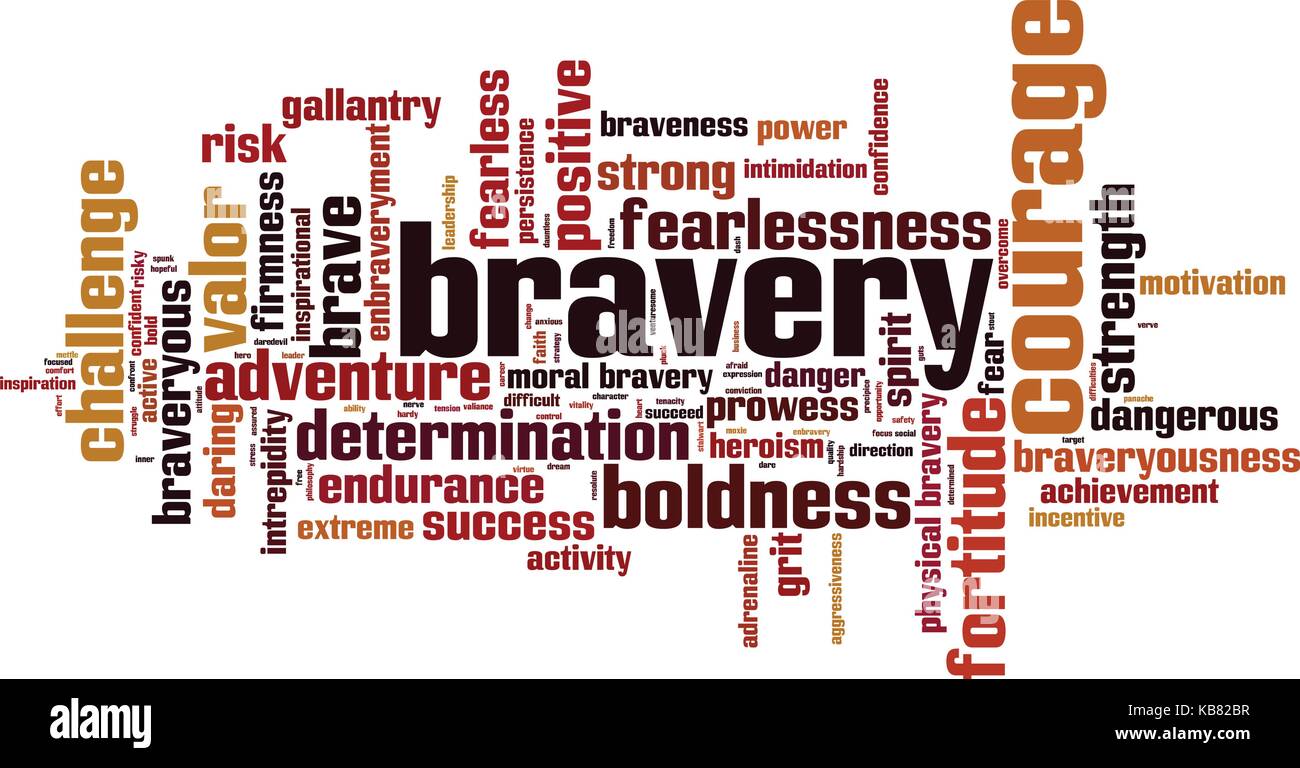
The Essence of ‘Brave’: Exploring Courage in a Complex World
The word brave resonates deeply within the human psyche. It evokes images of daring rescues, unwavering resolve in the face of adversity, and the quiet strength to stand up for what is right. But what does it truly mean to be brave in today’s complex world? This article delves into the multifaceted nature of bravery, examining its historical roots, psychological underpinnings, and contemporary manifestations. We will explore how bravery isn’t just about grand gestures, but also about the everyday acts of courage that shape our lives and the lives of those around us.
The Historical Tapestry of Bravery
Throughout history, the concept of bravery has been woven into the fabric of countless cultures and narratives. From the epic tales of ancient warriors to the selfless acts of ordinary citizens, bravery has been celebrated as a virtue, a quality that distinguishes individuals and inspires collective action. Consider the Spartans, whose entire society was built upon a foundation of martial prowess and unwavering courage. Their legendary stand at Thermopylae, though ultimately a defeat, cemented their place in history as symbols of unyielding bravery against overwhelming odds.
Similarly, the stories of firefighters rushing into burning buildings, risking their own lives to save others, exemplify the immediate and visceral nature of bravery. These acts, often performed without hesitation, showcase the profound human capacity for selflessness and courage in the face of imminent danger. These are the types of stories that make people think about what it means to be brave in their own lives.
The Psychology of Courage
Psychologically, bravery is not simply the absence of fear, but rather the ability to act despite it. It involves a complex interplay of cognitive and emotional processes, including risk assessment, emotional regulation, and a strong sense of purpose. Research suggests that individuals who exhibit bravery often possess a heightened sense of self-efficacy, believing in their ability to influence outcomes and overcome challenges. They also tend to have a strong moral compass, guiding their actions and providing a framework for ethical decision-making.
Furthermore, bravery is often linked to resilience, the ability to bounce back from adversity. Those who have faced significant challenges and emerged stronger are often more likely to exhibit bravery in future situations. This resilience provides a foundation of confidence and a belief in their ability to navigate difficult circumstances. Learning to be brave often comes from facing smaller fears first.
Everyday Acts of Bravery
While grand acts of heroism capture our attention, bravery is also found in the everyday moments of our lives. It can be as simple as speaking up against injustice, standing up for a friend who is being bullied, or pursuing a dream despite facing obstacles. These seemingly small acts of courage can have a profound impact, both on the individual and on the community.
For example, a student who overcomes their fear of public speaking to deliver a presentation is demonstrating bravery. An employee who challenges a discriminatory policy at work is displaying courage. A person who chooses to be vulnerable and share their struggles with others is exhibiting strength. These are all examples of how bravery manifests in our daily lives, shaping our character and influencing our relationships.
The Importance of Vulnerability
Brené Brown, a renowned researcher on vulnerability, argues that bravery is inextricably linked to vulnerability. To be truly brave, she suggests, we must be willing to embrace vulnerability, to expose ourselves to the risk of rejection, criticism, and failure. This requires a deep sense of self-acceptance and a willingness to be imperfect. When we allow ourselves to be vulnerable, we open ourselves up to connection, empathy, and growth. Vulnerability is not weakness; it is the birthplace of courage, innovation, and creativity.
Bravery in the Face of Adversity
Life is inevitably filled with challenges and setbacks. How we respond to these moments defines our character and reveals our capacity for bravery. Facing adversity requires resilience, determination, and a willingness to learn from our mistakes. It also requires a strong support system, a network of friends, family, and mentors who can provide encouragement and guidance.
Consider the stories of individuals who have overcome significant disabilities to achieve remarkable feats. These individuals demonstrate extraordinary bravery in the face of physical and emotional challenges. Their stories inspire us to believe in the power of the human spirit and the potential for overcoming adversity. [See also: Overcoming Obstacles: Stories of Resilience] These acts of bravery are testaments to the human spirit.
Cultivating Bravery
Bravery is not an innate trait; it is a skill that can be cultivated through conscious effort and practice. By gradually stepping outside of our comfort zones, we can build our confidence and develop our capacity for courage. This might involve taking on new challenges, speaking up in meetings, or simply trying something new. The key is to start small and gradually increase the level of difficulty. Every act of bravery, no matter how small, strengthens our resolve and makes us more resilient in the face of future challenges.
- Start small: Begin by tackling small fears and challenges.
- Focus on your values: Ground your actions in a strong moral compass.
- Build a support system: Surround yourself with people who encourage and support you.
- Practice self-compassion: Be kind to yourself when you make mistakes.
- Celebrate your successes: Acknowledge and appreciate your accomplishments.
The Impact of Bravery on Society
Bravery is not only beneficial for the individual; it also has a profound impact on society as a whole. When individuals are willing to stand up for what is right, to challenge injustice, and to pursue their dreams, they contribute to a more just and equitable world. Bravery inspires others to act, creating a ripple effect that can transform communities and even nations.
Throughout history, countless individuals have demonstrated bravery in the face of oppression and injustice. From civil rights activists to environmental advocates, these individuals have risked their lives and livelihoods to fight for a better world. Their courage serves as a reminder of the power of individual action and the importance of standing up for what we believe in. We must be brave to stand up for those who cannot stand up for themselves. [See also: Inspiring Stories of Social Justice] Their bravery is a beacon for us all.
Conclusion: Embracing Bravery in a Changing World
In a world that is constantly changing and often filled with uncertainty, bravery is more important than ever. It is the quality that allows us to navigate challenges, overcome obstacles, and create a better future for ourselves and for generations to come. By embracing vulnerability, cultivating resilience, and standing up for what is right, we can all become more brave and contribute to a more just and equitable world. The word brave should be something we all strive to embody.
Ultimately, the essence of brave lies not in the absence of fear, but in the willingness to act despite it. It is a quality that can be cultivated through conscious effort and practice, and it has the power to transform individuals and communities. So, let us all strive to be a little bit braver each day, to face our fears with courage, and to create a world where bravery is celebrated and rewarded.

